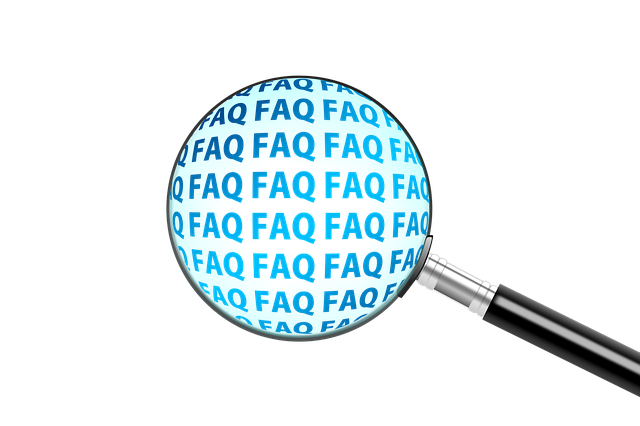FAQ Structured Data, achieved through HTML markup and JSON-LD code using the FAQPage schema, significantly boosts online content's visibility and interactivity. It helps search engines understand user queries better, resulting in context-rich snippets on SERPs. This not only enhances user experience but also improves search engine rankings. By structuring FAQs hierarchically, organizing them under broad categories, and utilizing Accordion Schema SEO, websites can ensure their content stands out to both users and search engines, leading to higher click-through rates, reduced bounce rates, and better conversion opportunities. Regular reviews and updates are crucial for continuous improvement and alignment with user queries.
Adding the FAQPage schema to your website content is a strategic move to boost user engagement and search engine visibility. In today’s digital landscape, rich FAQ results have become a powerful tool for users seeking quick answers. This article explores the fundamentals of FAQ Structured Data, its benefits, and provides a comprehensive guide on optimization. Learn how to structure content effectively, enhance user interaction, and measure success, all while aiming for improved search engine placement through FAQ structured data implementation.
- Understanding FAQ Structured Data: The Basics
- Benefits of Implementing FAQPage Schema
- Optimizing Your Website for Rich FAQ Results
- Structuring Your FAQ Content Effectively
- Enhancing User Engagement with FAQs
- Measuring Success and Continuous Improvement
Understanding FAQ Structured Data: The Basics

FAQ Structured Data forms a crucial component in enhancing online content’s visibility and interactivity. It is a structured format that helps search engines understand user queries better by providing context-rich snippets in search results. This structured data, specifically the FAQPage type, allows for dynamic presentation of frequently asked questions and their answers, making it easier for users to find relevant information quickly. By adding this schema to your content, you’re not just optimizing for search engines but also improving user engagement on your website.
Implementing FAQ Structured Data involves understanding HTML markup language and utilizing specific JSON-LD (JavaScript Object Notation for Linked Data) code snippets. The process begins with identifying the relevant questions and their corresponding answers within your content. Then, by structuring this data in a predefined format, you can instruct search engines on how to display it as appealing, informative snippets in SERPs (Search Engine Results Pages). This optimization, often referred to as FAQ Snippet Optimization, is a powerful strategy to capture users’ attention and drive more organic traffic to your website.
Benefits of Implementing FAQPage Schema

Implementing the FAQPage schema offers a multitude of advantages for websites aiming to enhance their online visibility and user experience. By utilizing this structured data, sites can present frequently asked questions (FAQs) in a more organized and visually appealing manner, directly improving user engagement. The schema allows search engines to understand the content better, resulting in rich FAQ result snippets that capture the user’s attention on search engine results pages (SERPs).
This strategy not only makes it easier for potential customers to find answers to their queries but also encourages them to interact with the website. The FAQPage type is specifically designed to organize content into sections and questions with corresponding answers, mimicking a natural conversation flow. By adding FAQ schema, websites can effectively leverage Accordion Schema SEO techniques, ensuring that crucial information is displayed prominently while allowing for dynamic interactions, ultimately leading to higher click-through rates and better conversion opportunities.
Optimizing Your Website for Rich FAQ Results

To optimize your website for rich FAQ results, implement FAQ Structured Data using the FAQPage schema. This schema helps search engines understand your content better by providing a structured format for frequently asked questions and their answers. By leveraging this structured data, you can enhance the display of your FAQs in search engine results pages (SERPs), making them stand out as rich snippets with accordions that allow users to easily navigate through various topics.
Focus on FAQ snippet optimization to maximize visibility and user engagement. Ensure your schema includes not only question-answer pairs but also relevant properties like questions’ dates, authors, and last updated times. This level of detail can significantly improve the quality of your rich FAQ results, making your website’s content more appealing and valuable to users and search engines alike.
Structuring Your FAQ Content Effectively

To structure your FAQ content effectively for optimal search engine visibility and user engagement, begin by organizing questions in a logical, hierarchical manner. Group related queries together under broad categories or topics to create a clear navigation path. Each question should be concise and focus on addressing a specific user need or inquiry. This structured approach enhances the overall user experience, as visitors can swiftly find answers without getting overwhelmed.
Additionally, incorporate the Accordion Schema SEO technique to present your FAQ content dynamically. This schema allows you to display questions and their corresponding answers in a compact, interactive format, which is ideal for rich FAQ results on search engine result pages (SERPs). By implementing the Schema FAQPage Type, search engines can better understand your content’s structure, leading to improved indexing and potentially higher rankings.
Enhancing User Engagement with FAQs

By implementing FAQ Structured Data, websites can significantly enhance user engagement and interaction. FAQs provide a structured format for presenting information in a way that’s easily scannable and digestible. Users often have specific questions they’re looking to answer quickly, and well-structured FAQs offer immediate solutions. This not only improves user satisfaction by providing relevant answers but also encourages visitors to spend more time on the page, reducing bounce rates.
FAQ Snippet Optimization plays a crucial role in enhancing visibility and click-through rates. Search engines use Accordion Schema SEO to create rich snippets, showing users exactly what information each FAQ provides before they click. This preview feature can significantly boost SERP real estate, making your content more attractive and increasing the likelihood of clicks. How to Add FAQ Schema is a straightforward process that involves integrating specific microdata into your website’s HTML, ensuring search engines can easily understand and display your FAQs in enhanced formats.
Measuring Success and Continuous Improvement

Measuring Success and Continuous Improvement play a pivotal role in enhancing the effectiveness of your FAQ Structured Data efforts. By implementing the Schema FAQPage type, you unlock the potential for Rich FAQ Results, significantly boosting user engagement. Track key metrics such as click-through rates (CTRs) on FAQ snippets optimized through FAQ Snippet Optimization to gauge the immediate impact. Over time, analyze user interactions and feedback to refine your content further. Regularly reviewing and updating your structured data ensures that it remains relevant and aligned with user queries, fostering a positive feedback loop that drives continuous improvement. This iterative process not only enhances SERP real estate but also cultivates a more satisfying user experience.
